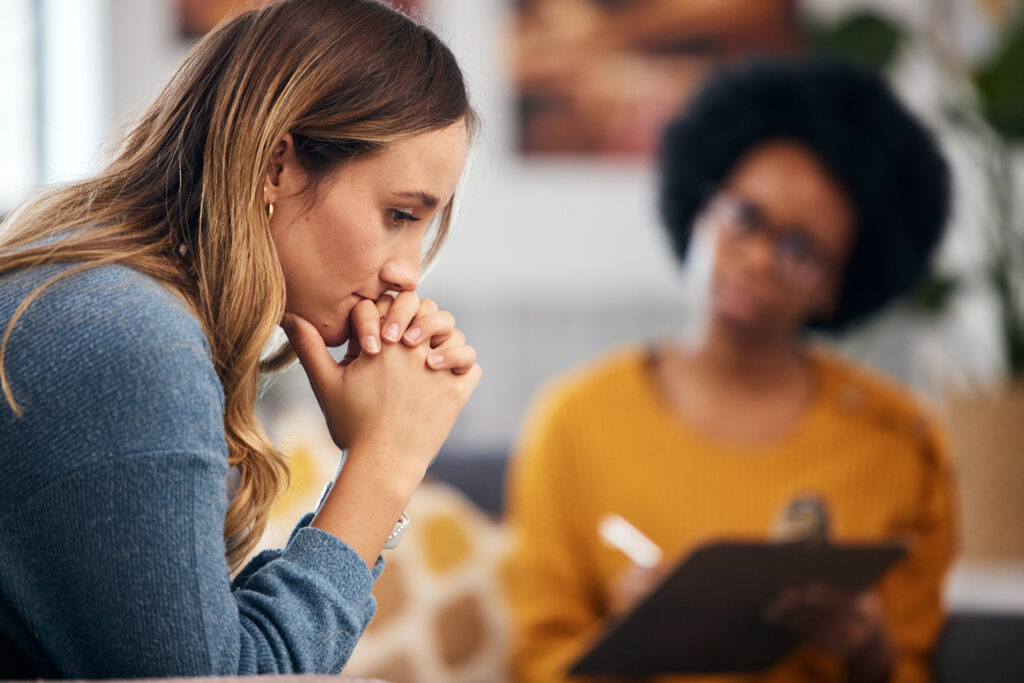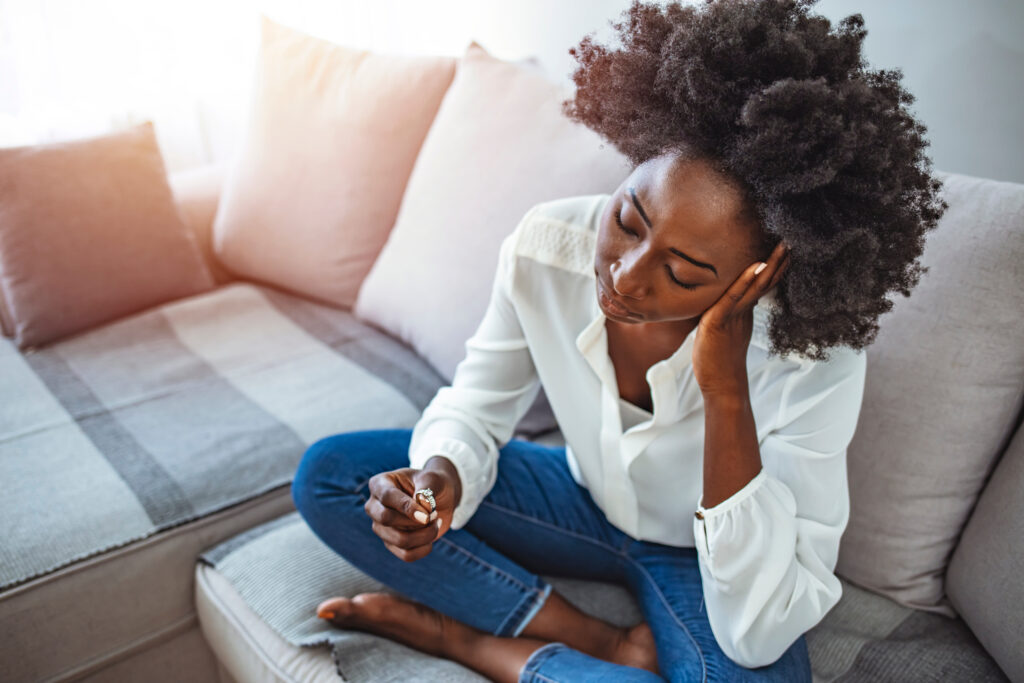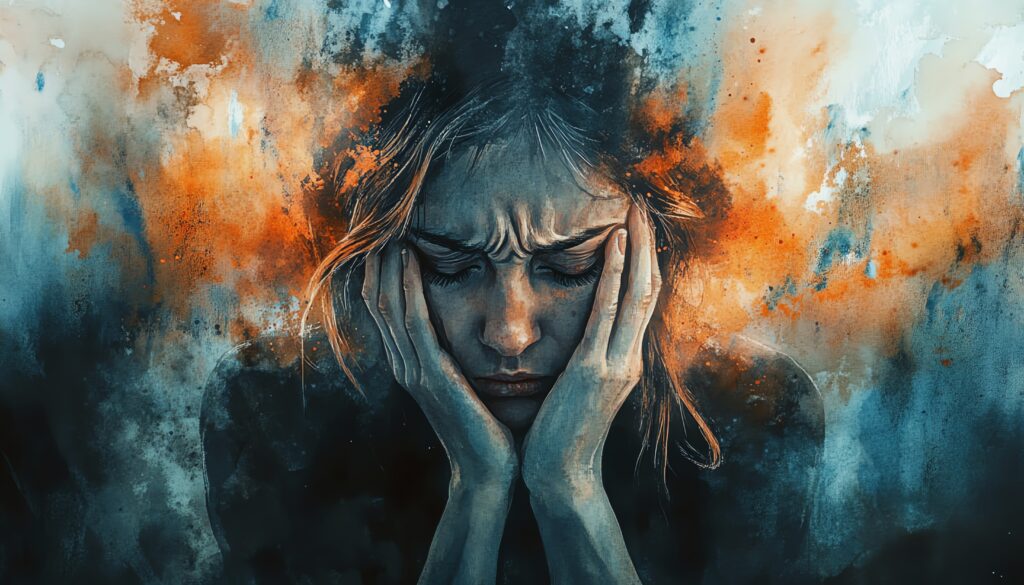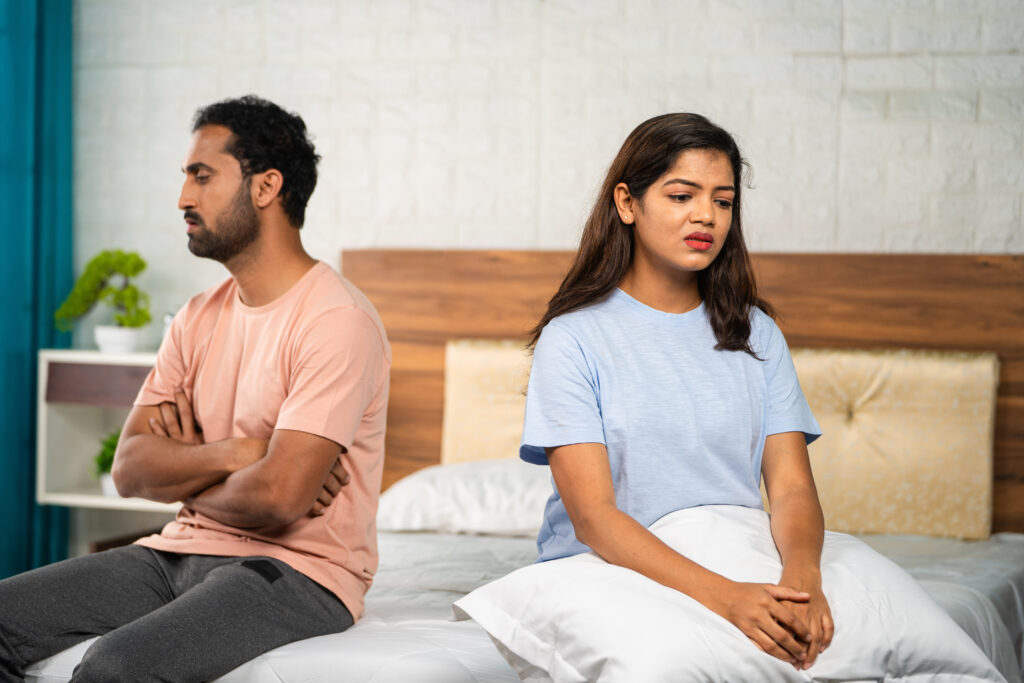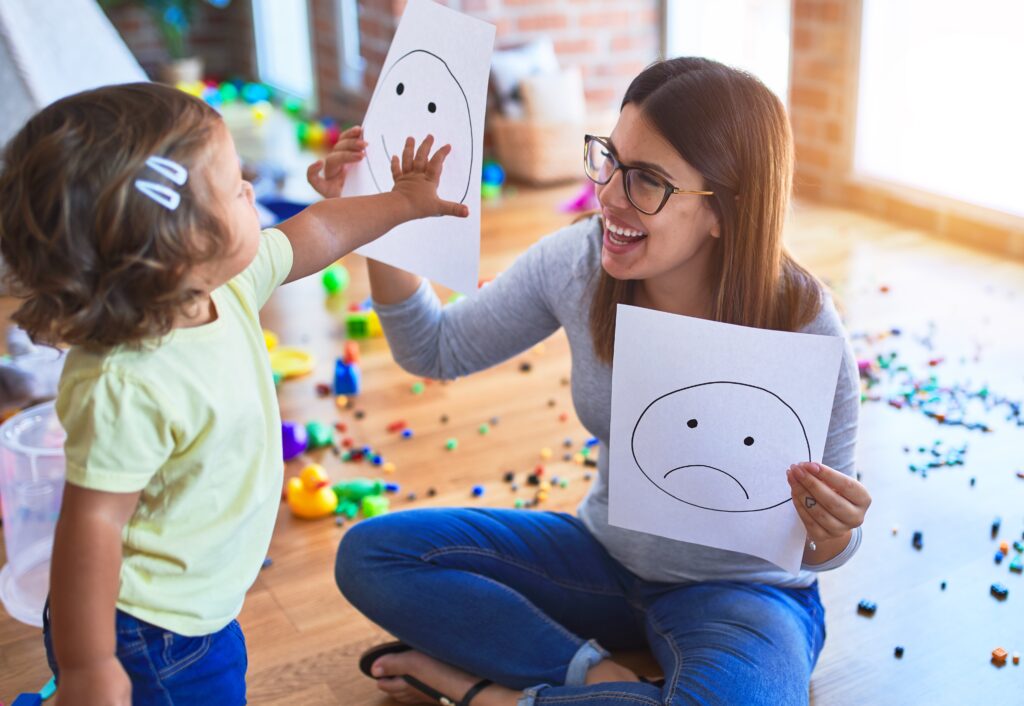Anxiety is an emotion that all human beings experience at different times and for different reasons. In small doses, anxiety can be helpful in helping to focus on problems and find solutions and protects us from danger. For some, it can be a useful emotion to help motivate and move forward. When it becomes too severe or happens often it can become debilitating. Experiencing anxiety is an automatic survival response meant to give our brains and bodies information about our surroundings. It is important to recognize that we can not eliminate anxiety completely, but we can learn tools to help cope when our mind tricks us into thinking we are in a life threatening situation.
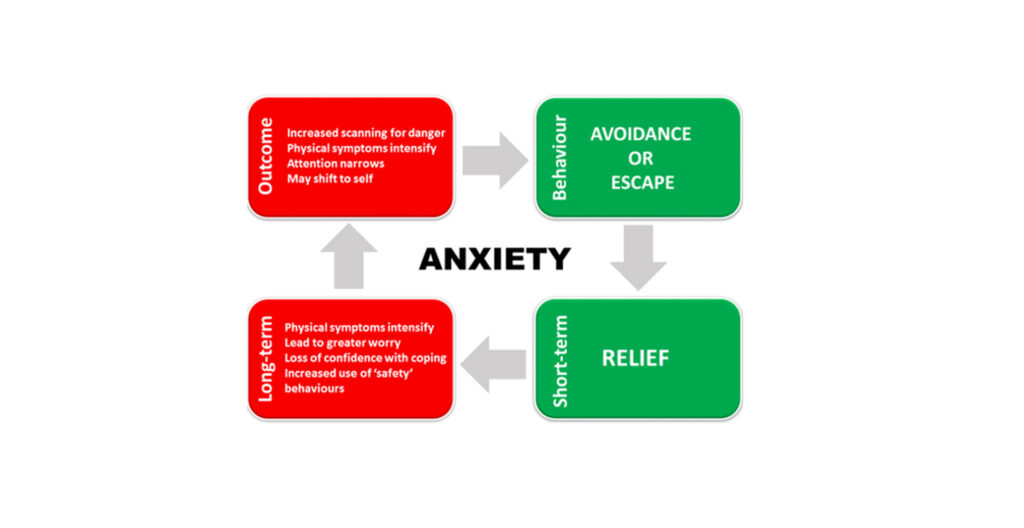
Some physical symptoms include:
- Tightness in the chest
- Muscle tension
- Rapid heart beat
- Headaches
- Difficulty sleeping
- Restlessness
- Stomach/digestive issues
Some mental symptoms include:
- Uncontrollable worry
- Excessive nervousness
- Poor concentration
- Fortune telling (when we assume predictions of the future as facts)
- Emotional reasoning (when our minds tell us our emotions reflect reality)
How does anxiety grow?
One of the major things that can contribute to the cycle of anxiety is the behavior of avoidance. Avoidance can be both physical avoidance and mental avoidance. Some examples of avoidance include: not going
to a work meeting to avoid giving a presentation, not answering a phone call of someone you are not wanting to talk to, using unhealthy coping mechanisms to avoid uncomfortable feelings, and procrastinating or avoiding tasks. When we avoid, it provides temporary relief from the feeling of anxiety and gives an immediate sense of relief. This can make us feel better in the short-term, but actually leads to long-term anxiety growth. The fear that is initially felt from an anxiety provoking situation can get worse and actually communicates to our brain that when we avoid the symptoms will go away. As a result, the symptoms will be worse next time and avoidance is more likely.
How can I work against the urge to avoid?
There are many ways to work through the avoidance cycle, including Cognitive Behavioral Therapy (CBT) to work through and challenge and change the anxious thoughts as well as exposure therapies. Medication can also be used in conjunction with these different treatment modalities to help with some of
the physical and intrusive symptoms of anxiety, but is not always needed and is not a substitute to help
work through the underlying cause of anxiety. By facing the source of anxiety and becoming more aware
of triggers, the anxiety will begin to shrink and the urge to avoid will fade.If you feel you need further help with understanding and treating your anxiety please give us a call at Good Therapy San Diego (619) 330-9500. We’re here to help!

